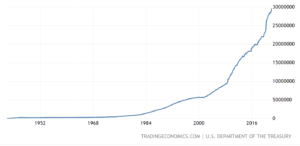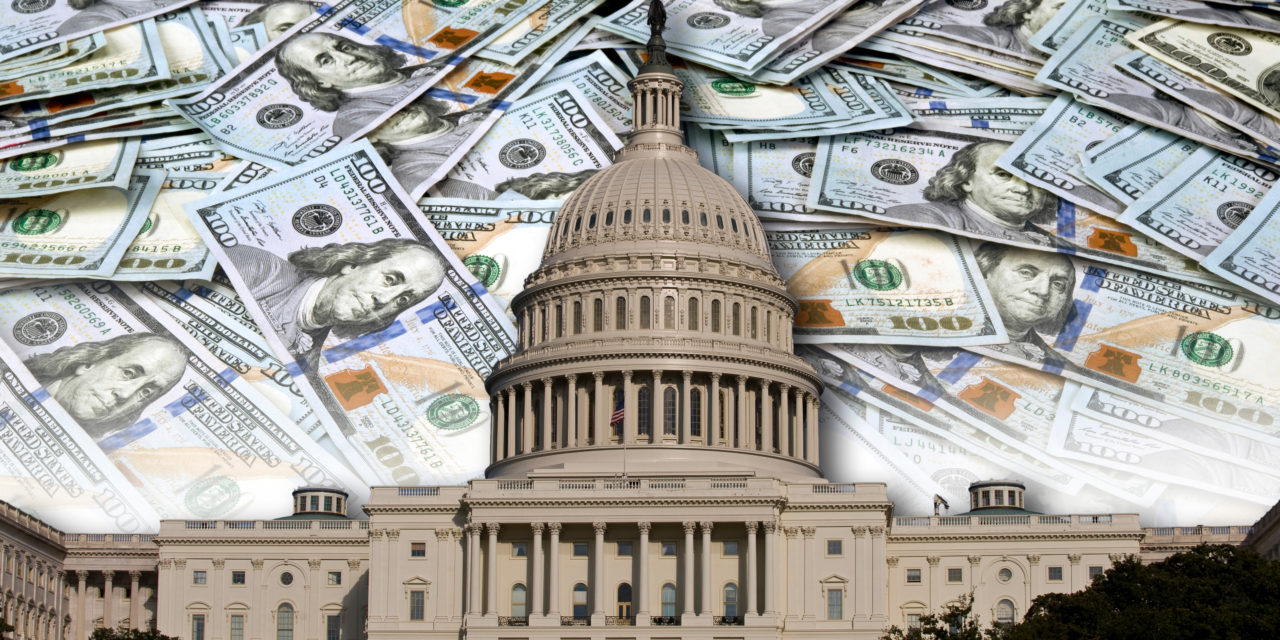On Tuesday this week, the U.S. national debt exceeded $30 trillion for the first time ever.
The meteoric rise in our nation’s debt comes after the federal government spent trillions to ostensibly combat COVID-19 and the negative economic consequences that stemmed from lockdowns and the economic shutdown the U.S. underwent in 2020.
Our national debt hit $30 trillion years ahead of schedule, following the excessive and profligate spending of the past couple of years.
The Daily Citizen has previously chronicled the various rounds of spending that Congress has approved since 2020.
“In March 2020, Congress passed that $2.2 trillion CARES Act – the largest emergency spending bill ever enacted. Congress then spent another $900 billion in December 2020 on coronavirus relief.
“Next, Congress spent another $1.9 trillion in March 2021 on the American Rescue Plan, followed by $1 trillion more on the infrastructure bill that Congress passed in November 2021.
“All told, prior to any consideration of the Build Back Better Act, Congress spent $6 trillion on coronavirus relief or infrastructure.”
In 2000, the national debt stood at “only” $5.6 trillion. By 2008, the nation’s debt exceeded $10 trillion for the first time. In 2017, our national debt again doubled to $20 trillion. It then increased to $22 trillion in 2019, prior to the COVID-19 pandemic. Just three years later, we’ve topped $30 trillion.

Photo Credit: Trading Economics
“This is a jaw-dropping number that is a real cause for concern,” said Maya MacGuineas, president of the nonpartisan Committee for a Responsible Federal Budget.
“It is the result of both borrowing for really important crises, most notably the Covid pandemic, but also trillions and trillions of borrowing for no reason other than politicians have stopped being willing to pay the bills.”
Michael Peterson, chief executive of the Peter G. Peterson Foundation, a nonpartisan group that advocates for deficit reduction, said, “The milestone of $30 trillion in debt should be a giant red flag for all of us about America’s future economic health, generational equity, and role in the world.”
Good parents seek to give their children a good life, and to leave them better off than they were. Frequently, parents also work hard and sacrifice to leave their children an inheritance.
But the government’s out-of-control spending has made sure that millennials, Generation Z and future generations will be saddled with debt, likely for the rest of their lives.
According to the U.S. Debt Clock, each and every taxpayer now owes a startling $239,808 as their share of our nation’s debt.
If history is any teacher, our $30 trillion is now our new debt floor – it’s likely no one alive will ever see a United States with less than $30 trillion in debt.
And don’t blink. If you do, you might miss our national debt soaring passed $40 trillion.
According to the Congressional Budget Office, unless Congress gets its fiscal house in order, our growing national debt will “reduce the well-being of younger generations.”
The Heritage Foundation notes, “Future generations would likely have lower incomes than their parents and see less economic opportunity throughout their lives” as a result.
It’s far past time for our nation’s elected officials to get serious about tackling our debt problem, to tighten our collective waistlines and reduce spending.
If they don’t, generations not yet born will be stuck holding the bill and paying the price.
Photo from Shutterstock.






